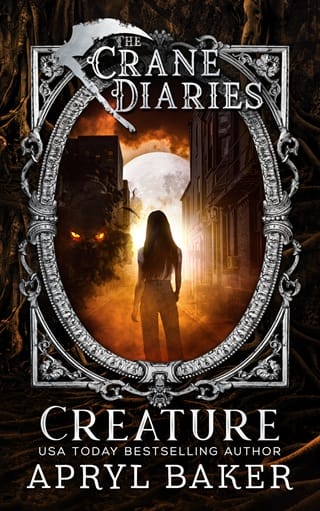Chapter 12
After leaving the Stables, I took the tree-lined path towards my office. The air was cool and fresh, the breeze brushing my face, and the only sound was birdsong. It was one of those crisp January blue-sky days. Back in London, my commute had been very different, involving rushing to the station by seven thirty in the morning. Usually there would be scrunched-up beer cans and cigarette butts on the pavement, and a queue of cars, buses and taxis stuck in traffic. The exhaust fumes would get in my throat, and I'd hold my breath while waiting to cross the road. I'd worn earbuds for most of my journey, shutting out the world around me. Although there would always be a book in my handbag, I'd usually end up skimming the news and scrolling social media on my phone instead.
Now, it struck me that this hadn't been the healthiest way to live, neither physically nor mentally. I'd thought that I thrived in that fast-paced, noisy environment where everyone did their best to avoid each other's gazes on the commute. I'd be lucky to get a seat on the train, then the tube was always jam-packed, and I'd go up the steps at Piccadilly Circus in denial of the knot in my chest. Working in a capital city was exciting, but I'd rarely taken a moment to breathe properly. Was this a better way to live, and should I be taking more time to appreciate nature and the simple things in life?
My office was in the old servants' quarters on the ground floor of Gatley Hall. Rosalind had shown it to me after the interview. I'd be sharing with her, but she apparently spent a lot of time in meetings. The sound of banging and drilling came from the rooms towards the end of the corridor, and I recalled Rosalind saying that the ground floor was being renovated in preparation for my Below Stairs exhibition. A sign on the door said housekeeper's parlour.
‘Morning,' I said to Rosalind, putting my bag on the floor next to my new desk. The computer monitor looked ancient.
‘Hello, Claire.' Rosalind swivelled round on her chair to face me. ‘You're looking very smart. You know you can wear jeans and, well, whatever you like really?
‘You're not the first person to tell me that,' I said, smiling.
‘And a hot tip – coming from a woman who likes her designer shoes, I wouldn't bother with heels round here. You never know when you might need to walk to the other side of the property. I damaged a rather fine pair of Jimmy Choos getting the heel caught in a paving stone last summer. Never again,' she said, shaking her head.
Understanding her pain, I pulled a face. Perhaps I'd have to reconsider my wardrobe after all.
‘Have you settled in at Rose Cottage?' Rosalind said.
‘Yes, thanks.'
‘And you've met Jim?'
‘I have indeed.'
‘Right, I have a few meetings this morning, so you see the bottom drawer in your desk?'
‘Yes.'
‘In there, you'll find correspondence from people connected with the house over the years.'
‘Oh?'
I slid the drawer open. It was filled to the top with envelopes and pieces of paper. What a sight. I closed it again swiftly.
‘Where did all this come from?'
‘We've found that when servants or descendants of servants, villagers, labourers who worked on the farm, even a land girl, thought they were about to die, they'd get in touch and tell us stories linked to the house as they didn't want the information to be forgotten.'
‘How interesting,' I said, and it was, although the prospect of going through that drawer was quite overwhelming.
‘Some of it goes back to the late nineties, but we've had more correspondence since we were on that TV show, Objects from the Past.'
‘What do you want me to do with all this?'
Rosalind shrugged. ‘I'm hoping you might find some gems to use in the Below Stairs exhibition. The board is very interested in this project and wants Wendy in PR to try and get some articles in the mainstream press if she can, to encourage ATP membership, which has been flagging in recent years. Feel free to ask one of the volunteers if they're able to help you, once you get to know everyone.'
‘Sounds good.'
‘Right, I have to go, so will catch you later,' Rosalind said, getting up and closing the door behind her.
‘Bye,' I said.
Had I got ahead of myself, thinking life here would be better? I could still be working for one of the most prestigious art galleries in the world and my assistant would be doing the admin. But after Dad died, hadn't I wanted an easier life in order to process the grief? Would I have taken the job if Rosalind had shown me this drawer during the interview? How would I get to know the volunteers? So far, I'd only met Helen. Maybe she'd be able to help me.
All I could do was give this place a chance. Besides, Rose Cottage was tying me to Gatley Hall, and, if I decided to leave, where would I live?
Sliding open the drawer once again, I saw envelopes addressed to Gatley Hall in the cursive handwriting of a lost era and scraps of paper in various shapes and sizes with notes written on them. The letters had already been opened and I placed them into a pile. Many were illegible, and the ink had faded in some of them. One was dated 1998. Sifting through them, I couldn't find much of any interest, although I could probably use the information in a display to give an overview of Gatley Hall during the war. Stories from the 1940s about holes in boots and not being able to find batteries for torches. A liaison between a housemaid and a Canadian soldier training at Netley Park, nearby.
One letter caught my eye. It was written in fountain pen, the ink a rich royal-blue colour. The paper was thick, of good quality and cream and it was the beautiful, cursive handwriting that drew me to this letter, in particular.
15, Church Road
Gatley
1 March 2013
Dear Sir/Madam,
I am writing to ask if you might assist with a query. I'm looking for a person associated with Gatley Hall during the Second World War. Her name is Tabitha and she lived at Rose Cottage. Her maiden name was Willis, if that helps, and after she got divorced (her married name was Dobson) she probably changed it back to that. Although I can't be certain of whether she married again. I was employed as a lady's maid for Lady Violet during the Second World War and would be grateful if you were able to tell me where Tabitha is now. It is most important that I find her as I'm not getting any younger, and you are my last hope.
Yours sincerely,
Margaret Anderson
So, Tabitha had lived in my cottage. But who was she and what was her connection to Margaret? Why did Margaret want to find her now? I remembered seeing a photo of the servants in the Gatley Hall guidebook when preparing for the interview. I took a copy from the shelf above me. Flicking through the pages, I found the black-and-white photograph, taken in 1941 in front of a Christmas tree in the grand hall. I scanned the servants from left to right, back to front. A butler, footmen, hallboy, chauffeur, housekeeper, cook, lady's maid – could she be Margaret? – and a few housemaids in black dresses, white aprons and white caps. Names and roles were typed on a double-page spread, along with snippets of information about some of them.
The lady's maid was called Margaret Bartlett, and she was a slim and pretty young woman. Surely this had to be her, and Bartlett was her maiden name? She stood next to the cook, a Mrs Downside – a buxom, stern-looking middle-aged woman. Margaret wore a dark-coloured dress with a collar and long sleeves. The expression on her face was serious. None of the servants were smiling, and I guessed it wasn't what people did then when posing. Besides, they were probably standing there for a while so it would be difficult to maintain a smile, even if they wanted to. The butler, a tall, broad man wearing a morning coat, was called Mr Willis, and the housekeeper, who stood on the other side of the cook, was Mrs Willis. The butler and housekeeper must have been married, as sometimes happened, like Mr Carson and Mrs Hughes in Downton Abbey. Margaret was looking for Tabitha Willis – she had to be their daughter. Why did she so desperately need to find Tabitha?
My curiosity was piqued and perhaps this letter would give me something to get my teeth into as it would be good to keep my mind busy. My eyes filled with tears as I thought about how losing Dad had heightened my awareness of mortality. I wanted to help Margaret fulfil her quest before it was too late. In turn, selfishly, I hoped doing this might ease my grief. I put the other letters back in the drawer. This was the one that would get Wendy in PR her story, my gut told me so, and I felt that helping Margaret would be a good use of my time.
I photographed the letter with my phone before sliding it back into its matching envelope and placing inside my work diary. Why had Margaret waited so long to look for Tabitha? The first of March 2013 was almost two years ago. Would Margaret still live at the same address, or might she be in a care home? Would she even be alive? She looked around twenty in the photograph of the servants, so now she would probably be in her nineties.
All I could do was hope Margaret was alive and of sound mind.
 Fullepub
Fullepub 



